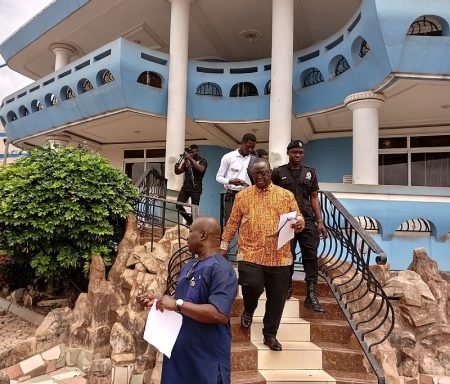Professor Godfred Bokpin, a prominent economist, has emphasized the crucial need for the government to establish robust Key Performance Indicators (KPIs) within the framework of the recently launched 24-Hour Economy initiative. He argues that while the policy holds promise, its success hinges on measurable targets and clear lines of accountability to avoid the pitfalls of previous well-intentioned but ultimately ineffective national development programs. Prof. Bokpin advocates for a rigorous monitoring mechanism integrated with the ongoing International Monetary Fund (IMF) program, mirroring the IMF’s emphasis on explicit data reporting and regular updates from key institutions like the Ministry of Finance and the Bank of Ghana. This structured reporting, he explains, fosters ownership and commitment, elements he believes are currently lacking in the government’s economic vision.
The core of Prof. Bokpin’s argument revolves around the importance of quantifiable progress. KPIs, he asserts, provide a clear benchmark against which the 24-Hour Economy’s performance can be evaluated. This data-driven approach allows policymakers to identify deviations from the intended objectives and implement necessary corrective measures across various sectors, including governance, market dynamics, and product development. He envisions a system where regular analysis and reporting enable informed decision-making and facilitate the initiative’s evolution from a conceptual framework to a tangible, accountable program.
Furthermore, Prof. Bokpin strongly cautions against establishing new, potentially costly administrative bodies for the policy’s implementation. He points to past experiences with initiatives like the Northern Development Authority, where high administrative costs often overshadowed the actual benefits delivered. Instead, he proposes leveraging existing national institutions such as the Ministry of Finance, the Ghana Statistical Service, and the Bank of Ghana, which already possess the necessary infrastructure and expertise for data collection and reporting. This approach, he argues, not only ensures cost-effective implementation but also seamlessly integrates the 24-Hour Economy into the existing system, promoting broader ownership and long-term sustainability.
The economist draws a parallel between the 24-Hour Economy initiative and the IMF program, emphasizing the importance of structured reporting and clear accountability. He believes that the discipline inherent in the IMF program, with its regular reporting requirements and performance evaluations, should be replicated in the implementation of the 24-Hour Economy. This structured approach, he contends, will not only facilitate effective monitoring but also foster a sense of ownership and commitment among the involved institutions, ultimately contributing to the initiative’s success. The absence of such a framework, he warns, risks replicating the failures of past development programs that lacked clear metrics and accountability.
Prof. Bokpin’s critique extends beyond the operational aspects of the 24-Hour Economy to include the potential for administrative bloat and inefficiency. He voices concerns about the creation of new bureaucracies, highlighting the possibility of escalating costs and diminished returns, as witnessed in previous initiatives. His proposed alternative – utilizing existing institutions – underscores a commitment to fiscal prudence and operational efficiency. He argues that these established bodies, with their existing capacity for data collection and analysis, are well-positioned to oversee the implementation of the 24-Hour Economy without incurring significant additional costs. This approach, he suggests, is not only more economical but also more strategically sound, integrating the new initiative into the existing institutional framework and promoting greater synergy.
In essence, Prof. Bokpin advocates for a data-driven, accountable approach to the 24-Hour Economy initiative. He stresses the importance of establishing clear KPIs and a robust monitoring mechanism, drawing inspiration from the structured reporting framework of the IMF program. Simultaneously, he champions fiscal responsibility by advocating for the utilization of existing institutions, thereby minimizing administrative costs and maximizing the potential for long-term success. His recommendations underscore the importance of learning from past experiences and implementing a well-structured, measurable, and accountable approach to national development initiatives.














